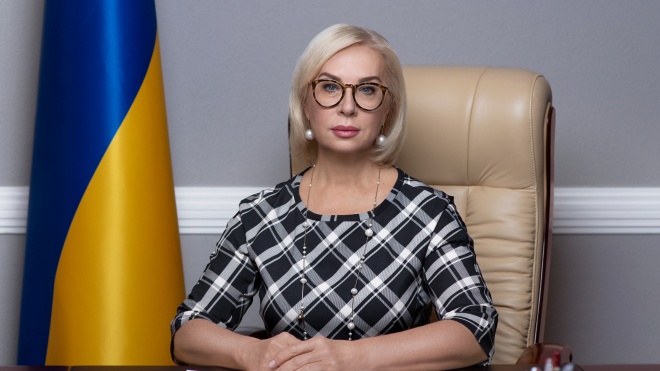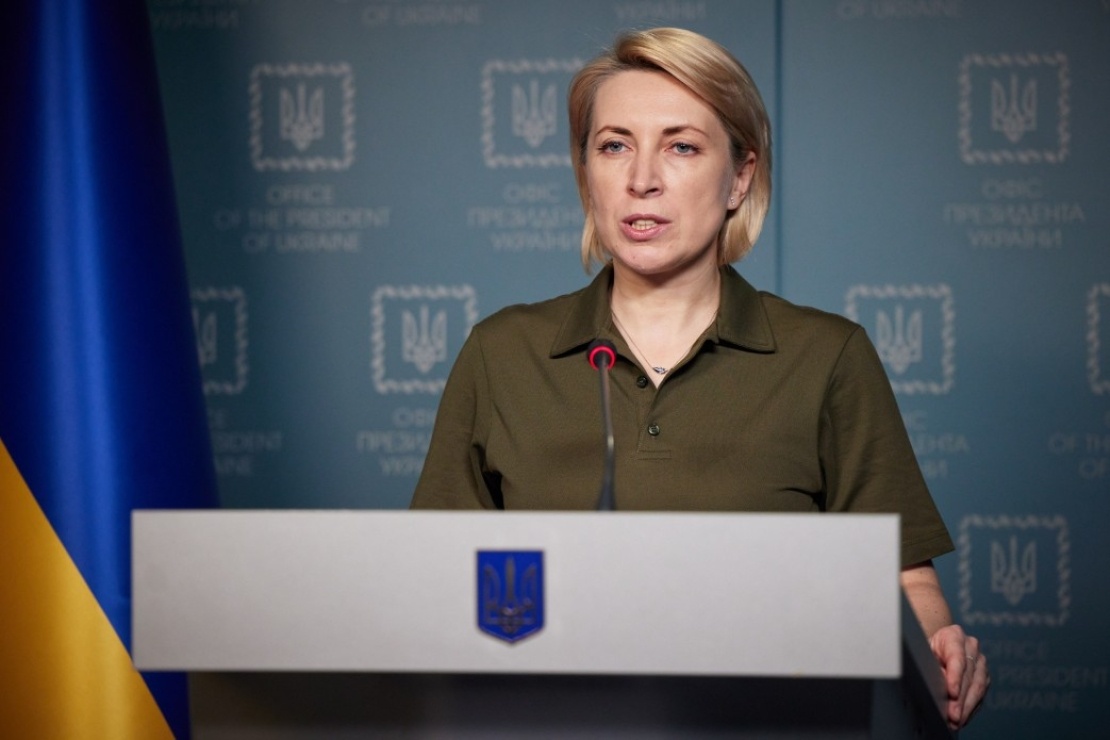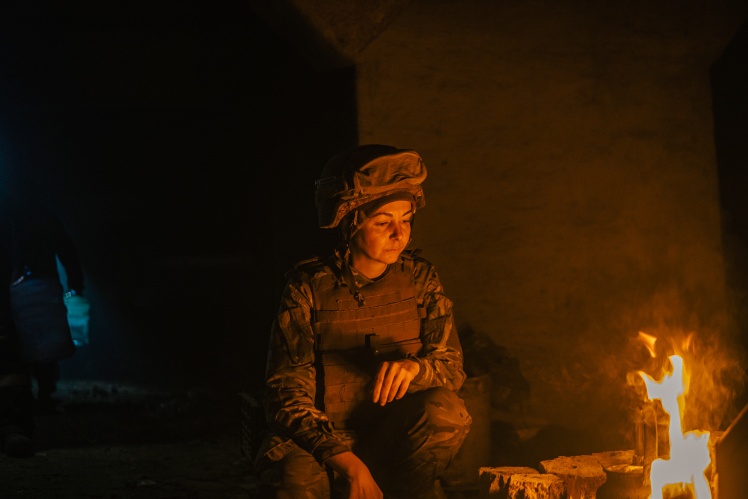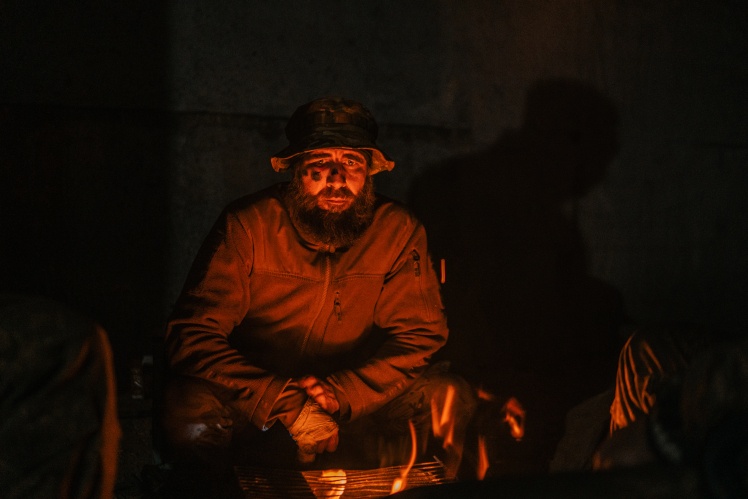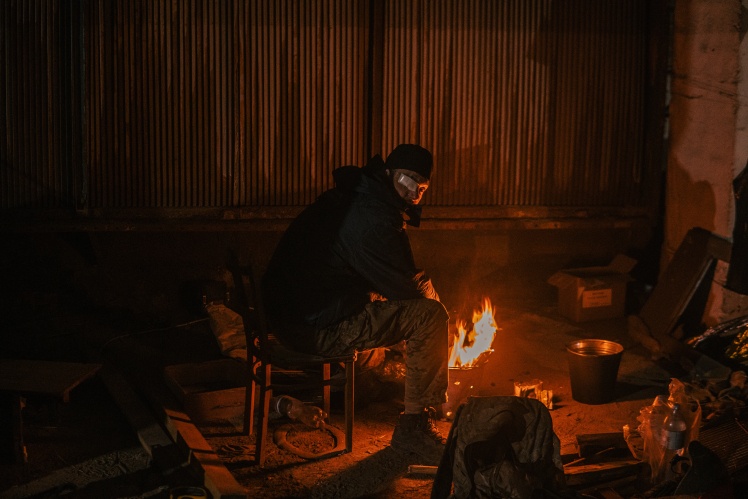You claim that your release is a political massacre of you. By whom exactly?
Since almost 2020, I have had limited contact with the Presidentʼs Office to address issues that need to be seen by high-ranking officials. I think that my position on the so-called anti-oligarchs bill has become such a trigger. I set out my position, as I did each time on all bills. I submitted it to the then Speaker of Parliament [Dmytro] Razumkov. My position was outrageous because it did not coincide with the position of high-ranking officials, who believed that [to pass the bill] things should be done differently. And then the actions to remove me from office began. I think this is due to high-ranking officials, in particular those who lead the Servant of the People faction. Because it is a parliamentary body, and the decision is made by the parliament.
Do you attribute your resignation now to the fact that you once spoke out against the anti-oligarchic bill?
You see, still, my cooperation with the Presidentʼs Office, with the [Servant of the People] faction, was tense. When I made annual reports, I tried to get to the president. However, according to the law, the Commissioner for Human Rights has the right to be urgently admitted to report on the human rights situation in Ukraine. The response from the Office was: "Yes, we support what you do as a commissioner, how you take care of your rights, we will inform you about a possible meeting". By law, the commissioner is a person equidistant from any state body. However, there must be cooperation. Therefore, we cooperated with public authorities. We provided all our positions. And so yes, the trigger [for dismissal] was my vision of the law on oligarchs.
Was there communication with the Presidentʼs Office before or after the dismissal?
No, unfortunately, there wasnʼt. I communicated only with the Speaker of the Verkhovna Rada [Ruslan Stefanchuk].
MP from the Servant of the People Pavlo Frolov voiced key complaints to you: almost did not fulfill your powers to organize humanitarian corridors, protect and exchange prisoners, counter the deportation of people and children from the occupied territories, and other human rights activities. Will you comment on these accusations?
The law clearly states: "The Commissioner exercises parliamentary control over the observance of human and civil rights and freedoms and their protection". And it is clearly stated that the Commissioner does not replace the activities of state authorities, but works as a subsidiary body. At the parliamentary session, Mr. Frolov and Ms. Iryna Vereshchuk said that Vereshchuk was involved in my work on humanitarian corridors, exchanges and humanitarian aid, but this is the task of the Ministry of Reintegration. What could the commissioner do?
Minister for Reintegration of the Temporarily Occupied Territories Iryna Vereshchuk.
Wikimedia
I received information from Russia about the opportunity to cooperate with negotiators with whom we spoke in September 2019. On March 24, I called Ms. Vereshchuk and said that it would be very appropriate to inform the head of the Presidential Office [Andriy Yermak] that the contact he knows about is relevant. I said that through my colleague, Ms. Tatyana Moskalkova, I can facilitate cooperation in such exchange talks or under other conditions.
Vereshchuk told me that they would do everything on their own. That is, they denied me. As for the humanitarian corridors, people contacted us via the hotline, which worked 24/7. We created a chat about humanitarian corridors, and then it didnʼt work, we didnʼt receive information. And it is impossible to make a humanitarian corridor on your own — they are made only in cooperation with the Armed Forces and law enforcement agencies. And the same must be agreed with Russia. Unfortunately, I did not have such powers and opportunities.
As for humanitarian aid, people also turned to us. We immediately passed it on to the humanitarian headquarters on the ground, and they helped.
In other words, the Commissioner is a parliamentary control over the observance of [human rights] and the implementation of laws by legal entities and individuals. Control, not substitution. I do not influence any bodies that Ms. Vereshchuk has been involved in, and in making humanitarian corridors.
Another complaint to you — you were in a "warm, peaceful Western Europe". What does that mean?
You see, I did my job, and there [in the law] it is clearly written: "To inform". I have twice visited the OSCE / BDIHR as a special guest to report on the human rights situation in Ukraine. I held 68 meetings with high-ranking officials from different countries. These were meetings with the UN High Commissioner for Human Rights, with the High Commissioner for Refugees. I met with the President and Secretary General of the PACE. And thanks to this, theses sounded, which were then to be included in the resolutions of the UN Human Rights Council, the PACE, and the European Parliament. The resolutions contain references to the data I have provided. Therefore, I believe that I traveled and [effectively] informed the world about Russiaʼs crimes in Ukraine. Also there were a speech in the Italian parliament or a meeting with the Secretary General of the Vatican to resolve issues of assistance to Ukraine, including the provision of weapons and continued sanctions pressure on Russia.
You were also criticized for focusing too much on the sexual crimes of Russian soldiers in your media work and not being able to corroborate the information with evidence.
I believe that this was snatched from a large pile of reports of crimes in Russia. We started informing about them even before the full-scale invasion began. The media disseminated information about the deportation of our citizens from the temporarily occupied territories to Russia. One and a half million people have already been deported, and there are more than 260 thousand children. It was necessary to talk about it from the very beginning. We had such information on February 18 and disseminated it, it is also genocide of the Ukrainian people.
As for sexual violence and rape, yes, we were contacted via the hotline. For example, on April 8, a man approached and provided a video of 40 children who had been raped. The children are [now] in Poland. We passed it to the Prosecutor Generalʼs Office, they have all these materials.
Of course, we had to talk about sexual crimes. After all, all the adopted resolutions clearly state that Russia systematically and with extreme brutality commits rape and other forms of violence, this is their tactic against the Ukrainian people. I received information about this directly from psychologists who worked on the UNICEF project.
Lyudmyla Denisova.
Wikimedia
You had a meeting with the signatories of the appeal, and you commented very dryly on the results. Was it still a mistake on your part to speak so openly about these war crimes?
What does "mistake" mean?
We talked to one of the signatories — Larysa Denysenko. She says such communication could undermine the credibility of international institutions, as there is no evidence, and another aspect is the trauma of people who have read such reports.
Here you can agree that such a message is really inconvenient. But the cruelty of the Russian Federation on the territory of Ukraine was not only in my stories, but also in the reports of other human rights activists and ordinary citizens — those who were witnesses or victims. This takes time. You can convey this information in a different way. But when you tell our Western partners about Ukraine, you feel that they are tired of our situation. They all want to live in peace, in harmony, to see nothing, to hear nothing, to think about nothing. They want this war to end somehow. "Somehow" is the key word. Therefore, arguments are sometimes harsh.
If you have already mentioned the hotline, you said that you and your daughter Oleksandra Kvitko, who worked on this hotline, were pressured. How did she get there?
There is a hotline in the commissionerʼs office, which operated even before the full-scale invasion. It has been working 24/7 since March 4. While I was the commissioner, more than 50 thousand people called there. When people started calling for psychological support in late March, I met with UNICEF and we discussed the issue. UNICEF organized a psychological counseling project on its own, without me. And it was UNICEF that hired these psychologists through the NGO they work with.
You also said that your daughter was summoned for questioning [by the authorities] three times. On what occasion?
Yes, she was summoned for questioning three times. I was also summoned for questioning three times, and I testified.
About sexual crimes?
For various reasons.
Which ones?
I can just say it was about her work.
The Ethics Commission of the National Psychological Association has announced that it is considering the first complaint about a possible breach of ethical requirements by Kvitko in the context of coverage of war crimes. Do you also associate this with pressure on you?
I canʼt relate it to any issues. I know something is there, but I donʼt know the details.
Frolov said that you did not go to Russia and Belarus to directly address the issue of Ukrainians there. And did you have such an attempt and do you communicate now, after the beginning of the invasion, with your Russian colleague Tatyana Moskalkova?
I communicated with Ms. Moskalkova in late February. But I could not agree to her terms of cooperation. I also addressed her several times with letters, but did not receive any answers.
When it was confirmed that people were being forcibly deported to Russia, she [Moskalkova] met with a representative of the UN High Commissioner for Refugees. I sent her a request asking for lists of deported people and help to return them [to Ukraine]. But there was no cooperation, so I proposed the creation of an international working group of ombudsmen, human rights defenders, representatives of the Commissioner for Human Rights, the European Ombudsman, to develop such a mechanism. Moskalkova confirmed that she supports my proposal. But, unfortunately, I have already been fired. I donʼt know what will happen next.
As for trips to Russia and Belarus, I am on the list of people banned from entering Russia.
Prosecutor General Iryna Venediktova told us in a comment that you did not provide her with materials about rapes that you reported on social networks. Instead, you sent her letters. Why didnʼt you submit the materials?
We passed only the materials when citizens addressed to the commissioner. It was not possible to pass on the information I received from psychologists. Counseling psychologists from UNICEF hotline have approached law enforcement agencies on their own. Because itʼs they who have to address it. You need to ask law enforcement if they have applied.
Prosecutor General Iryna Venediktova.
You have stated that you will challenge your dismissal in court. Have you already started this process?
I received a decision on dismissal on June 1. It was voted for on the basis of Article 12 of the Law "On the Legal Regime of Martial Law". But the dismissal contradicts Article 10 of the same law, which states that the ombudsmanʼs powers cannot be terminated while the state is under martial law. The resolution clearly states: "Distrust with subsequent dismissal", and then an order was issued that I terminate my powers in connection with such a resolution. I do not yet have an entry in the employment record book regarding this dismissal and I do not have the employment record book itself. Of course, I am preparing to file a lawsuit in the Supreme District Court of Cassation.
I have a losing situation — it is difficult to talk about the rule of law, so I will sue and go through all the instances. And then I will decide on further appeals. And you know, the question of returning to office is not worth it. But the law is the same for everyone. Itʼs not just about me. This also applies to others, to whom any procedure that contradicts other laws may be applied.
According to our information, one of human rights activists may hold this position instead of you, do you know who this can be?
Well, I think if they search they will find. I donʼt know about that.
When you mentioned the number of Ukrainians deported to Russia, what sources you relied on, apart from Russian statistics?
I relied more on sources published by UNHCR. When I spoke to the UN High Commissioner for Refugees, he said that our figures were the same. But, of course, they still have figures for those citizens who could leave Russia for other countries. Therefore, differences are possible.
What is happening now to the people who were deported?
We have long had information that Russia was preparing for deportation, creating temporary accommodation. Now the situation is different. For example, citizens who found themselves in the Yamal-Nenets okrug have almost settled down with relatives. Those who were brought to the [far eastern] Primorsky Krai, to Vrangel town — there are 300 people, including 122 children — live in the place [where they were settled], but need attention and support. This is done by Russian citizens who raise funds and help them. Points of temporarily relocated in Penza or Leningrad oblasts provided an opportunity for cooperation, in particular with consular offices, such as Estonia, and with the Estonian Ombudsman. They provided assistance so that they [Ukrainian citizen] could cross the border and move to the EU. There are different situations in different places.
Evacuation of civilians from the Azovstal plant in Mariupol.
Getty Images / «Babel'»
That is, most of the deported people are in remote regions of Russia?
Yes, I was informed about this. Citizens of the Russian Federation who want to help Ukrainians wrote me this via [online] messenger, and we have already passed it on to law enforcement agencies. Ukrainians found themselves in different parts of Russia, for example, in Chuvashia Republic there are more than a thousand our citizens, in [northern] Arkhangelsk and Murmansk oblasts, in the Primorsky Krai in the Far East — according to the latest data, in total in 53 regions of Russia.
In addition to Russia, people, including those from Kyiv and Chernihiv oblasts, were deported to Belarus. Do you know how many of them are there and did you have any connection with the Belarusian authorities or human rights activists?
There is no [contact] with the Belarusian authorities, there is no institution of a human rights ombudsman. Even before the hostilities, when there were protests in Belarus and our citizens were detained, I appealed to the Human Rights Committee in the Belarusian Parliament. Then we cooperated, now it is very difficult, but still we wrote to them. I was informed via a messenger on Facebook that approximately 36 thousand of our citizens remain in Belarus. But I can neither refute nor confirm this information.
We know about filtration camps in the occupied part of Donetsk Oblast. What is happening in other occupied territories, in particular in Kherson and Zaporizhzhia Oblasts?
Citizens wrote to us that, for example, the humanitarian situation in Vysokopillya, Kherson Oblast, is very difficult. At least 25 civilians were allegedly killed. Almost all administrative buildings were destroyed, there is a lack of food and baby formula. There are many insulin-dependent people, cancer patients, and people with thyroid disease in the village, but there is no help. In Kherson Oblast, the situation with the evacuation of residents is critical, and humanitarian aid almost doesnʼt get there. And if it gets, the occupiers give it only to retirees, and everyone else, as in Melitopol and Mariupol, have to do something to get it.
Evacuation of civilians from the Azovstal plant in Mariupol.
Getty Images / «Babel'»
Is there anything in these areas similar to the filtration to which Mariupol residents are subjected?
We donʼt know about Kherson and Zaporizhzhia oblasts, only about Mariupol and Donetsk and Luhansk Oblasts.
Is this filtering still going on there?
Yes. That is, they [the occupiers] take people out and inform about it themselves. Conditions there [in the filtration camps] are very bad. It is said that people can only be kept there for 36 days, but we know that there are cases when people are kept much longer and in very cramped conditions. For example, in Olenivka there are 750 places, but there are more than 4,000 people. They take turns sleeping, they are almost not released outside just to breathe fresh air. They arenʼt given enough water, they are fed with some kind of balanda. The detained can wash only in sinks. It seems like torturing people.
What happens to people who have not been filtered?
In the filtration camps, where our citizens were taken, they are being checked on how they felt about the "special operation". The right answer is needed. Then the phones are checked for communication with anti-terrorist operation participants. Citizens undergo such filtration, and then they are transported by buses, for example, to Taganrog, Rostov Oblast in Russia, and then by trains throughout the Russian Federation. People who did not pass the filtration were taken in the direction of Donetsk and Dokuchaevsk. This was evidenced by people who asked for such information or were looking for relatives. But it is impossible to determine the number of such people and where they are now.
There are also filtration camps, we called them "concentration camps", where our citizens were taken from Mariupol. For example, Olenivka, Novoazovsk district, Donetsk Oblast. They were taken to be forced to work — to dismantle the destroyed buildings. We know that their work was also used to dismantle the ruins of the drama theater in Mariupol. These people are in very difficult conditions. What happens to them next? There were reports that they were in some colonies, including Makiyivka. Unfortunately, it is unknown what will happen next.
Do you know about those Ukrainians who lived in Russia and Belarus before the Russian invasion of Ukraine? Do they face violations of their rights?
Yes. Citizens who were on the territory of Russia wanted to leave, but now Ukraine has no diplomatic relations with Russia — there are no embassy or consular services. They turned to us for help, but there was no such opportunity. I directly appealed to the Ministry of Foreign Affairs to consider this issue through agreements with the embassies of other countries and to facilitate the provision of such consular services, travel certificates to our citizens. Because sometimes children are born and do not yet have a document confirming Ukrainian citizenship so that parents can leave.
You said that you had information that Russia had asked the Ukrainian side to involve you in the negotiations on the exchange of Azov fighters?
Yes. I know that the Russian Federation, some officials there, talked about involving me in the exchange of Azovs.
Mariupol defenders on Azovstal plant.
Fighter of the "Azov" regiment Dmytro Kozatsky (positive "Orest")
Donʼt you know who added you there and why?
I wasnʼt present at that conversation, but the request was made recently, before my resignation.
Very little is said about this, but what are the chances of getting the Azovs out of Russia?
You know, when this process began with negotiations on the release of the Azovs, Ms. Vereshchuk texted me: "Please do not comment on anything." I told her: "Okay, I support your work on such negotiations and a possible exchange," and did not comment. And now I can not comment on this process of exchange, on what exactly will happen, because I am not involved in it. But the Azov fighters are now in Olenivka. They wrote to me that the conditions were very bad and asked me to spread this information so that the sides could agree to release them as soon as possible. I did it.
Question regarding the prisoners: how many Ukrainians were held captive in Russia and the occupied territories before the invasion, and are they on the exchange lists at all?
There were up to 130 people convicted, taken prisoner or under investigation — this is the case for the temporarily occupied Crimea. In my latest annual report, there is a complete list of citizens who were in captivity as of January 1, 2022. There were 250 missing persons in the “D/LPR”, and there were still people held captive in their prisons. What lists are they on now? I canʼt say anything, because the commissioner doesnʼt form any lists. How is the one we published formed? Through cooperation with the lawyers of each political prisoner and their relatives. Thatʼs why such lists are there, and they agreed to let us publish them. These lists need to be used. Now there is a center of the Main Intelligence Directorate (GUR) of the Ministry of Defense of Ukraine — it now takes care of prisoners, it is better to go there [for the information].
You may know who the Russian Committee of Soldiersʼ Mothers is working with in Ukraine, because their secretary said they were communicating with the Ukrainian side. Maybe your office or someone else did it?
There is the Geneva Convention about the Treatment of Prisoners. We — myself and my regional representatives — researched how Ukraine adheres to it. At one of the detention centers [for the war prisoners] in Kyiv, I researched whether their rights were being violated. There were no complaints. They [the captive Russians] asked me to call their wives or mothers so they do something to get their sons or husbands released. I called and passed these requests. Regarding cooperation with the Committee of Soldiersʼ Mothers, we have a Committee of Soldiersʼ Mothers of Ukraine. We tried to establish cooperation between our committee and the Russian one: there was a corresponding statement, we passed the necessary documents, but, unfortunately, nothing happened.
What was the reason they didnʼt want to cooperate?
Well, thatʼs the question you need to ask them.
What is happening in the annexed Crimea and how are things with the Crimean Tatars? Trials on them continue there, there are prison terms. Is there any understanding at all of whatʼs with them?
In Crimea, the occupying authorities continue to forcibly mobilize young people, and Putinʼs government plans to use college graduates as cannon fodder in the war against Ukraine. For example, there is the Sevastopol Shipbuilding College, where at the request of the military commissioner the exams were moved. The last day of exams is June 28, so that graduates can join the Russian army immediately. Such forced mobilization in the occupied territories of Russia, of course, violates the Geneva Convention relative to the protection of civilian persons in time of war. Because the occupying state is strictly forbidden to force people to serve in its armed or auxiliary forces.
Getty Images / «Babel'»
I learned that the Russian authorities want to conscript more than 3,300 people. During the years of temporary occupation of the Crimean peninsula alone, the fascist authorities called in more than 34 thousand locals. Most of them were sent to the mainland of Russia. This also contradicts international law, violates the rule of humanitarian international law, the UN resolution on the militarization of the temporarily occupied peninsula and the Fourth Geneva Convention. In addition, Russia is forcing them to abandon lawyers, the protection and legal support. And this is also a violation of the right to defense.
What about the Crimean Tatars?
In cases that are in the courts now, there are already very serious sentences. Then they [convicted Crimean Tatars] are transported to various colonies in Russia. We know that they are being tortured, we know that many Crimean Tatars are being brought to pre-trial detention centers without any grounds, where they are being held for many, many days. The situation gets even more complicated by the fact that some of the colonies, for example, in Krasnodar Kray or Rostov Oblast, are now being free for Ukrainian prisoners of war. Those who served their term there — both Russians and Crimean Tatars -- are moved elsewhere. This is also a factor of why their conditions may worsen. We have said many times that no medical care is provided to them— unfortunately, nothing is improving in this direction.
You will appeal your dismissal, but do you have a plan for what you will do next or havenʼt thought about it yet?
No, Iʼve already thought about it. Of course, I will continue my human rights work. I will continue to protect the interests of Ukraine and its citizens in all possible ways.
Translated from Ukrainian by Anton Semyzhenko.
Support Babel: donate in hryvnia 🔸 in cryptocurrency 🔸 via PayPal.
